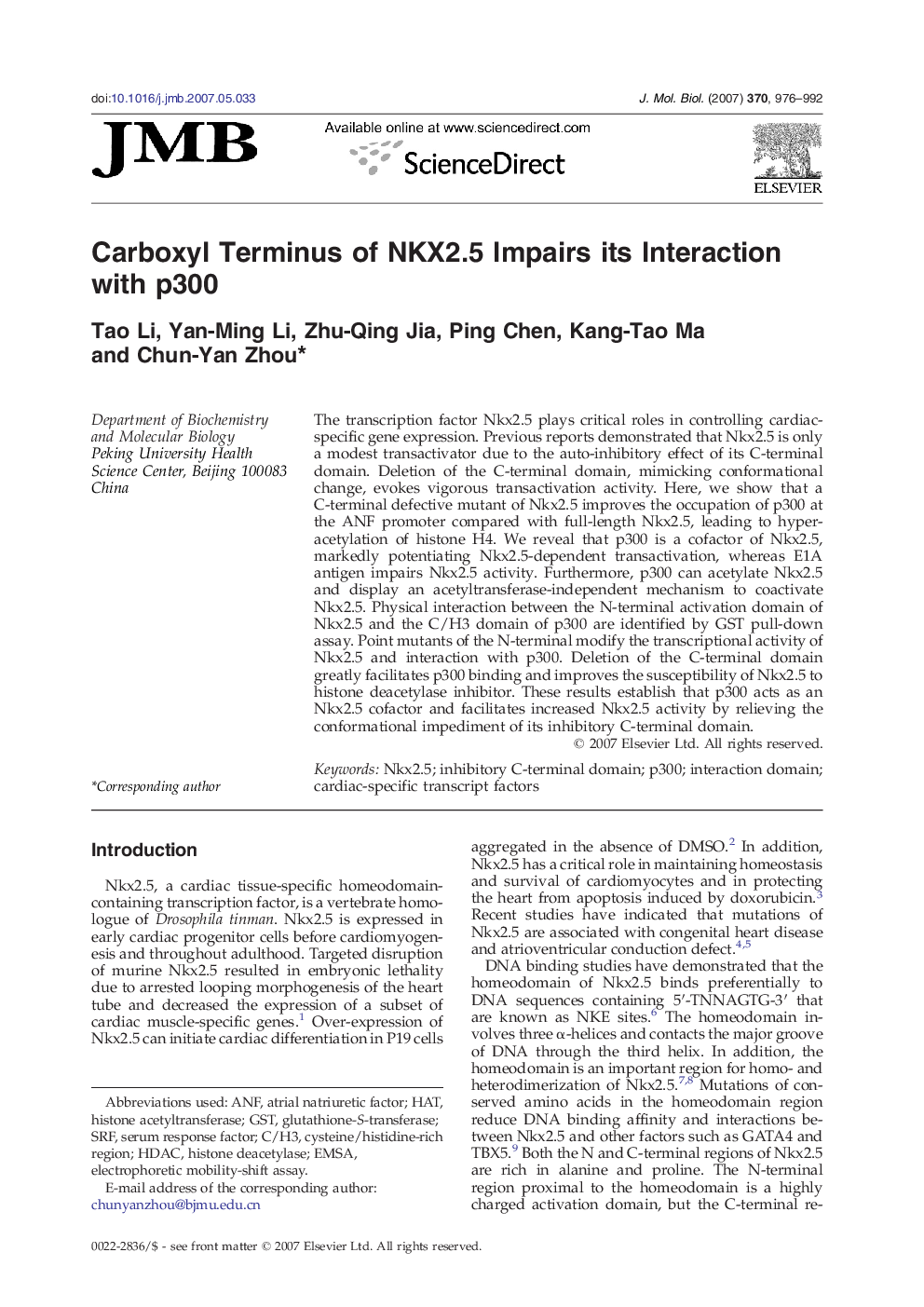| Article ID | Journal | Published Year | Pages | File Type |
|---|---|---|---|---|
| 2188257 | Journal of Molecular Biology | 2007 | 17 Pages |
The transcription factor Nkx2.5 plays critical roles in controlling cardiac-specific gene expression. Previous reports demonstrated that Nkx2.5 is only a modest transactivator due to the auto-inhibitory effect of its C-terminal domain. Deletion of the C-terminal domain, mimicking conformational change, evokes vigorous transactivation activity. Here, we show that a C-terminal defective mutant of Nkx2.5 improves the occupation of p300 at the ANF promoter compared with full-length Nkx2.5, leading to hyperacetylation of histone H4. We reveal that p300 is a cofactor of Nkx2.5, markedly potentiating Nkx2.5-dependent transactivation, whereas E1A antigen impairs Nkx2.5 activity. Furthermore, p300 can acetylate Nkx2.5 and display an acetyltransferase-independent mechanism to coactivate Nkx2.5. Physical interaction between the N-terminal activation domain of Nkx2.5 and the C/H3 domain of p300 are identified by GST pull-down assay. Point mutants of the N-terminal modify the transcriptional activity of Nkx2.5 and interaction with p300. Deletion of the C-terminal domain greatly facilitates p300 binding and improves the susceptibility of Nkx2.5 to histone deacetylase inhibitor. These results establish that p300 acts as an Nkx2.5 cofactor and facilitates increased Nkx2.5 activity by relieving the conformational impediment of its inhibitory C-terminal domain.
